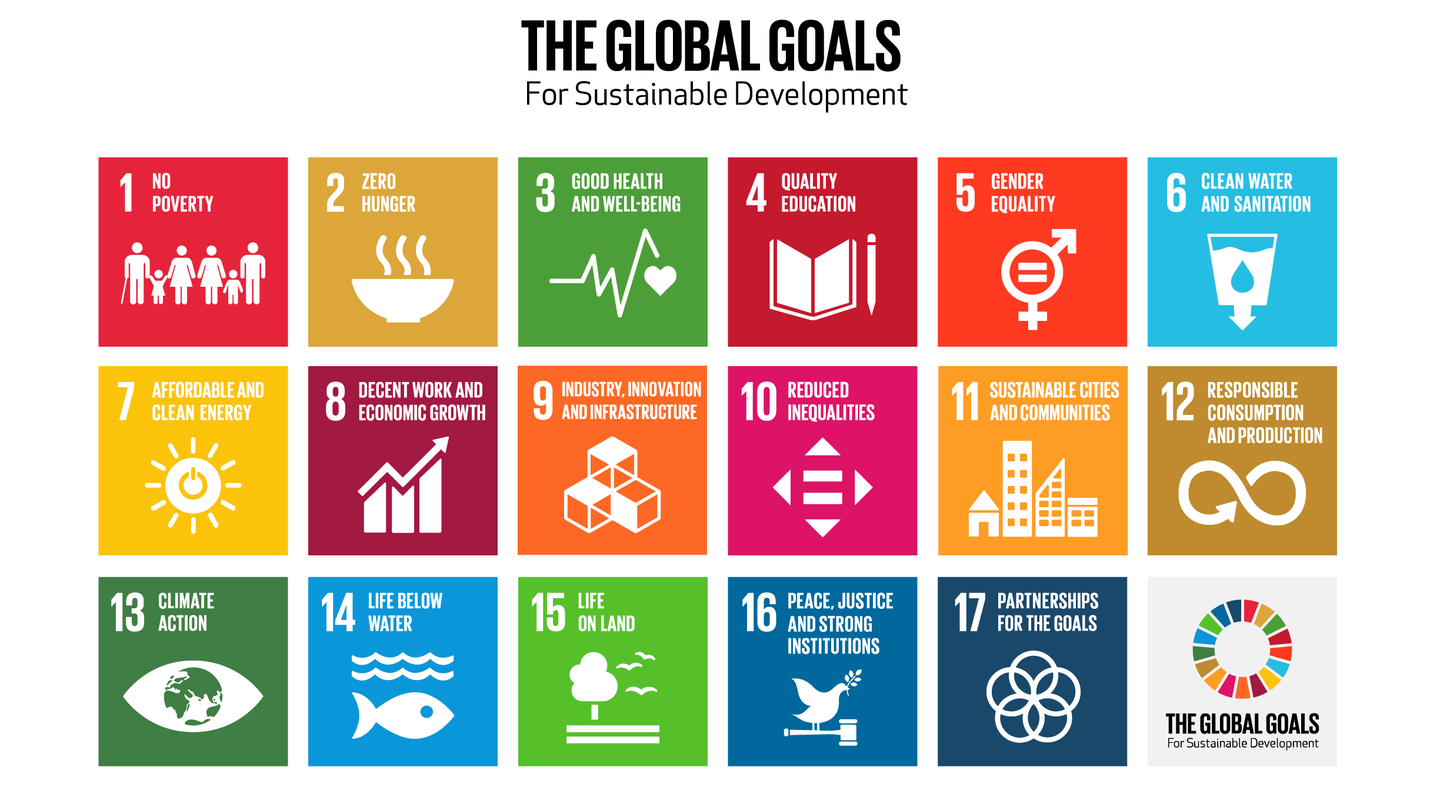
Build Back Fairer on the 2nd Anniversary of the Fair Trade Charter on this UN Global Goals Week 2020
By Andy Good, Treasurer Fair Trade Association of ANZ | Blog |
Did you know this week has been Global Goals Week? The UN Sustainable Development Goals (SDGs) were launched 5 years ago by world leaders at the 2015 General Assembly and consist of 17 high-level goals with 169 targets. By eliminating old divisions between North and South it gives all of us a role in responsible, respectful co-habitation on our planet. The UN goals are ambitious, but they are achievable with the help of partnerships between governments, NGOs, international organisations, and businesses. These goals bind the UN bodies, representatives, and staff—as well as their many partners—around a common mission.
Whilst we share many of these goals, the Association’s (and Fair Trade Movement) vision is different. Of course, Global Goal 1 shares the Fair Trade vision of a world without poverty, but we go further. These Goals do not explicitly challenge the prevailing economic and social ethos. Indeed, many would say they endorse it through a growth aspiration in Goal 8. Fair Trade, however, is a model which shares spoils and empowers all. We inspire businesses that bring fairness into enterprise. Our Principle 1 also refers to aims or mission. Mission defines how we structure, how we divvy up the enterprise return, dividing it between capital and work.
So much of our lives are governed by the prevailing ethos that profitability comes without costs, that some costs do not appear on a conventional balance sheet, forgetting conveniently, that inequality drives wealth accumulation, and that those that bear these costs remain powerless fighting over scraps. Whilst the models of Fair Trade developed 30 or 40 years ago, with makers in Africa, Asia or Latin America, are still important, and Fair Trade indeed has entered the mainstream with corporate social responsibility, that original ethos is now influencing many in other sectors, and today we have new models perhaps striving for a fairer ‘doughnut’ economy where social enterprise is a new norm.
As the regional peak body and a network member of the global World Fair Trade Organisation (WFTO), the Association also echoes the call to ‘Build Back Fairer’ in today’s statement from WFTO’s President Roopa Mehta:
Making the link between the practical business of connecting enterprising makers in the Global South with consumers in our own countries is a challenging task. The Association is part of a wider and diverse movement of businesses, NGOs, and activists all gathered within the Fair Trade Movement under its Charter.
The Fair Trade Movement is deeply committed to increasing transparency within its supply chains (Principle 2). Our work depends on trust: the trust of consumers who buy Fair Trade products and the trust of those who invest in new services and programmes. Fair Trade organisations and our supporters are committed to protecting that trust, firstly by adopting the highest possible standards of integrity, transparency and accountability, and secondly by striving for continual improvement of its impact through learning from monitoring and evaluation of their work. Whether you seek out Fairtrade marked coffee or buy Fair Trader of Australia artisan homewares, you are supporting these standards which protect us from ‘fair-washing’.

Today’s activism and enterprise championed by an incredible diversity of organisations are the results of decades of accumulated hard work. With Fair Trade’s aim of improving global sustainability, our core values align with that of the UN’s sustainable development agenda. We can therefore find our WFTO 10 Fair Trade Principles embodied within the Global Goals. Here is a snapshot of some of the ways in which successful fair trade businesses are helping reach them through trade.
I have mentioned Goal 1; we are ending poverty via mission in Principle 1, with transparency and trust building in Principle 2, but our vision for Goal 8, is focused on inclusivity, empowerment and removing inequality, per Principles 3, 4, 6 and 7. Growth could perhaps be replaced by livelihood but inclusivity is critical! We, of course, support decent and safe work, fair payment of local living wages and free association. Much of our artisan-ware is made by women, so Goal 5 (gender inequality) is addressed by Principle 6, whilst stewardship of the environment (Goal 11 & 13) are found in Principle 10. Finally, we link our own communities with those of makers (Goal 10) in a common ideal of sustainability. We don’t just sell but advocate change and the Association has an active programme that encourages Fair Trade in Faith Communities (Principle 9). You can probably find more links (I missed out an important one!).
If you run a business, tell us which Goals your maker partnership contributes to addressing or which Fair Trade Principle inspires you. If you are an activist or a consumer (perhaps you have a favourite fair trade brand) tell us what Goal is important to you.
Let’s all take an extra step and ‘Build Back Fairer’.
 Get Involved. Join the Fair Trade Movement.
Get Involved. Join the Fair Trade Movement.Recent
-
Searching for the right word. Is it Fair Trade?
-
Article: Rev'd John Martin on ethical consumerism and the importance of making sure workers in the supply chain are treated fairly.
-
Mitsui renews its commitment to being a Fair Trade Workplace
-
Article: Rev. John Martin on Building Back Fairer
-
Article: Rev'd John Martin on buying Fair Trade certified products to ensure you are part of an effective movement for change.
-
Recorded Webinar: Be Slavery Free on the Elimination of Child Labour
-
World Human Rights Day: A Reflection
-
Recorded Webinar: Fair Trade and Fairtrade: How we work together to Alleviate Poverty
-
Principle Ten - The Whole Package
-
Audio: Radio Skid Row on Fair Trade and Fashion Revolution
